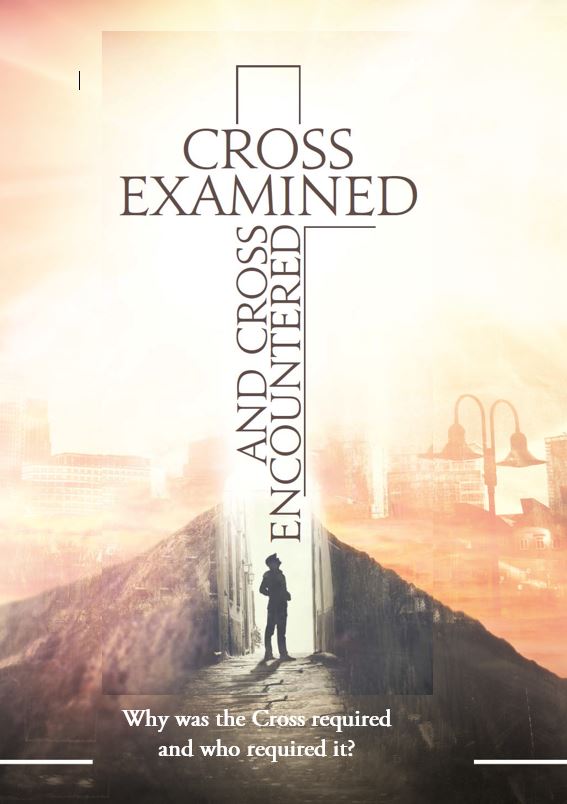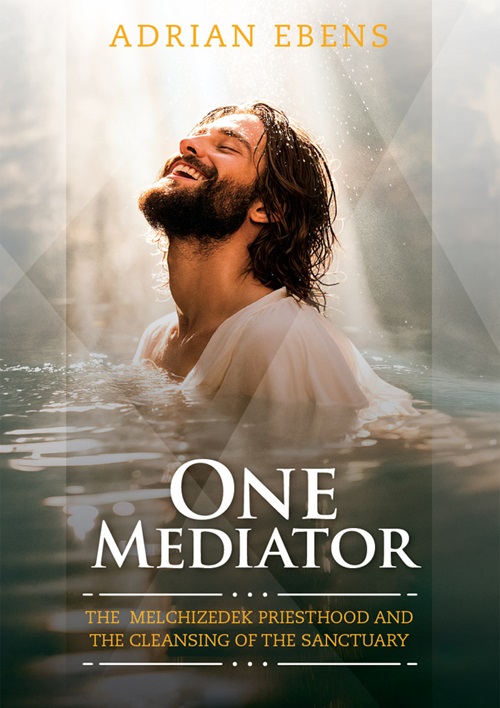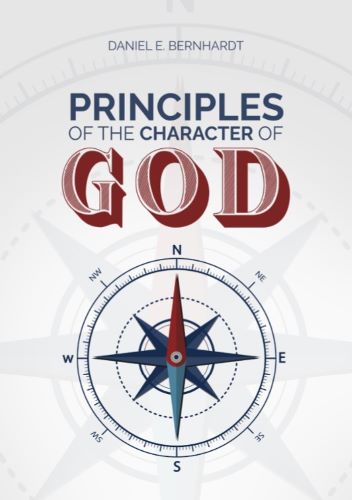The Compromise of Conditionalism
Since researching for the previous articles concerning Conditionalism I have concluded that: Modern SDA’s explanation of the non-immortality of the soul, is a watered-down, diluted, corrupted “version” of Conditionalism. How so?
1. Dualistic-Nicene-Trinitarianism teaches that “immortality” is NOT a gift from God since ALL men posses it naturally. God-the-Trinity does NOT give the redeemed immortal life because they already possess it. The Trinity merely decides the final destination where the immortal soul resides: Heaven or Hell. (See St. Augustine, )
2. Non-dualistic-incarnational-Sonship-Trinitarianism, one divine Being (i.e. Max Hatton), teach the annihilation of the wicked, while immortal life for the redeemed is the gift of the Trinity collectively, and/or Christ exclusively.
3. Non-dualistic-incarnational-Sonship-Trinitarianism, three divine Beings (i.e. Whidden, Moon, Reeve), teach the annihilation of the wicked, while immortal life for the redeemed is generally the gift of Christ specifically, even to the exclusion of God the Father. The reasoning is that if Christ has inherent immortality, and the Father did NOT give him such; this immortality is the gift of Christ exclusively. This is why “who only hath immortality” has been re-interpreted to mean Christ, and NOT the Father.
4. Early SDA’s consistently expressed the Biblical concept that immortality is the gift of God the Father, through faith in the life, death and resurrection of His only begotten Son.
The whole process of attempting to teach Conditionalism within the context of Trinitarianism, has further emphasized the de-personalization of God Himself. If the term “God” actually means “Trinity” in total; then to call God by the personal pronoun “He” sounds much too mono-theistic. Yet, referring to God as They, and Them, sounds much too polytheistic. If we reference the Trinity God as the great “It”; would sound much too depersonalized. Therefore, when explaining the great “gift” of “immortality”, we are forced not only to identify the “giver” of this wonderful gift; but also explain how all THREE are the great givers of immortality. Such attempted explanations of "God" means "three", not only border, but fully enter the realm of nonsensical.
The following are portions of five articles related to Conditionalism, and the Trinity. The first three represent the standard early SDA explanation. The final two present the “new interpretation” by way of comparison, and contrasting viewpoints. While not dealing with conditionalism directly, the problem of identifying WHO " loves", and WHO "gives" is readily appearant. The goal is simply understanding that the doctrine of Conditionalism has been seriously compromised, if not entirely “changed” by attempting a Biblical explanation within a Trinitarian context. First, the “old” interpretation:
THE GIFT OF GOD
by D. BUDD
"GOD so loved the world, that he. gave his only begotten Son, that whosoever believeth in him should not perish, but have everlasting life." John 3: 16.
These words of the beloved disciple stand out pre-eminently above all other words of Scripture. From early childhood we have been familiar with them; and while we often forget other portions of the Bible, these words of the apostle of love are remembered. More has been said concerning this one text than concerning any other one portion of Holy Writ; yet much more remains to be said.
What is it that gives these few simple words of inspiration their place of prominence in the minds of men? The central theme of the text is the great and eternal principle of giving, which underlies the entire plan of salvation. God so loved that he gave. This has given the verse its place in the hearts and lives of men.
The principle of giving naturally divides into three distinct and separate phases: first, the giver, and his reasons for giving; second, the gift; third, the recipient of the gift. These three are fully stated in our text,—God the giver; Christ, the only begotten Son, the gift; and the world, or as the text implies, the individual, the recipient. For in full accord with the plan of redemption, we are not saved in the kingdom of God as groups or as families, but as individuals. Thus the gift of God becomes a personal gift from the Father to every one in the world.
The height and depth of the Father's love is far beyond our finite understanding, but we do know that he so loved man that; had only one responded to the offer, the great gift would have been given. Eternity will be a constant revelation of God's unfathomable love to his creatures.
Paul, the great apostle, speaks of the "unspeakable gift." And so it is. We do not and can not fully grasp its fullest significance to us here. Again, the apostle tells us that the "gift of God is eternal life." In giving Jesus, the Father really gave us eternal life. By his life of sacrifice and his death on the cross, Christ made it possible for all to attain unto perfection and to life eternal.
John, in speaking of the life of Christ, says that "as many as received him, to them gave he power to become the sons of God." In accepting Christ as the divine gift, we receive power to live for him here — to overcome every inherited and cultivated tendency to evil; and at his glorious appearing we shall becrowned with life immortal. (Advent Review and Sabbath Herald, Jun 27, 1918, p. 8, by D. Budd)
WHO HAS IMMORTALITY?
THE Bible plainly states in 1 Tim. 6:15, 16, that the invisible God, the Father "only hath immortality." This immortal life is given by God, the Father to the Son; "for as the Father hath life in Himself; so hath He given to the Son to have life in Himself." John 5: 26.
There is only one way by which mortal man can obtain this immortality; for, "this is the record, that God hath given to us eternal life, and this life is in His Son. He that hath the Son hath life; and he that hath not the Son of God hath not life." 1 John 5:11, 12.
Outside of Christ there is no eternal life for mortal man; but the one that abides in Christ hath life, and when "Christ, who is our life, shall appear, then shall ye also appear with Him in glory," clothed with immortality forever. Col. 3:4; 1 Cor. 15:51-53. (S. N. Haskell, Bible Training School, January 1909).
IMMORTALITY
MRS. S. N. HASKELL
ARE we immortal? is a question often asked. The Bible says that only one being naturally possesses immortality.
"In His times He shall show, who is the blessed and only Potentate, the King of kings, and Lord of lords who ONLY HATH IMMORTALITY, dwelling in the light which no man can approach unto; whom no man hath seen, nor can see." 1 Tim. 6: 15, 16.
The only one possessing immortality is the Father, the one whose person no man hath seen. The Father hath given this same life to the Son, "As THE FATHER HATH LIFE in Himself; so HATH HE GIVEN TO THE SON TO HAVE LIFE IN HIMSELF. John 5:26. From this last text we find there are two beings that have life in themselves. The same life the Father hath, and that is immortality,—eternal life. God calls man mortal, not immortal.
Job 4:17. Man does not of himself possess immortality; but "thanks be to God which giveth us the victory through our Lord Jesus Christ," there is away by which "mortal man" may finally be clad in the glorious robes of immortality, and even in this life have within him eternal life. "This is the record, that God hath given to us eternal life, and this life is in His Son. He that hath the Son hath life; and HE THAT HATH NOT THE SON OF GOD HATH NOT LIFE." 1 John 5:11, 12.
None but the righteous have the promise of eternal life, and they possess it just as long as they have Christ within them the hope of glory. Col. 1:27. If they reject Christ and turn from Him they have no eternal life; for no one that cherishes sin has eternal life. "Whosoever hateth his brother is a murderer: and ye know that no murderer hath eternal life abiding in him." 1 John 3 : 15. ( Bible Training School, 1905; Signs of the Times, Jan. 15, 1906].
THE FOLLOWING ARE EXAMPLES OF THE “NEW” INTERPRETATION:
To Know Him Is To Love Him, by Carl Coffman.
MANY people have said that the sacrifice of our Lord Jesus Christ is heaven's greatest demonstration of the love that the blessed Trinity has for the entire created universe…
Ellen White says that "the law of God existed before man was created. It was adapted to the condition of holy beings; even the angels were governed by it."— Seventh-day Adventist Bible Commentary, vol. 1, p. 1084. She adds this: "In the law every specification is the character of the infinite God."—Ibid., p. 1104.
In other words, the holy Trinity are love and law, and to be in Their presence would be to live in the very presence of law and love…
The Sabbath School lessons this quarter will bring out the fact that the love of the Trinity is so great that the members of the Godhead were willing to "suffer," even in Their eternal foreknowledge of the fact that man would sin and that at last Calvary would occur…(by Carl Coffman, Lake Union Herald, Jan. 18, 1983, Carl Coffman is the chairman of the department of religion, Andrews University, Berrien Springs, Michigan.).
God organized for our salvation, by Joel Sarli and Gerald Wheeler.
Even before God made the angels, He wasn't alone. For God was three. There was God the Father, and God the Son, whom we call Jesus, and God the Holy Spirit. Grown-ups call this the Trinity, a word that means three."…
The Father, Son, and Holy Spirit love each other so much that They created us to share that love. Love always wants more love."…
Judaism and Islam say that God is one. Most Christians say that He is three persons in one. Other Christians say the whole concept of the Trinity is an error borrowed from the pagans. Many early Adventists believed the doctrine of the Trinity to be a false teaching inspired by Satan. What does the Bible teach?…
Trinity: what the Bible teaches What we understand about the nature of God will shape every other teaching, including that of the doctrine of salvation, so it is important that we clearly understand what the Bible says about God…
In the Old Testament, sometimes God speaks of Himself in the plural (Gen. 1:26; 3:22; 11:7). In fact, of the many Hebrew words the Old Testament writers used to designate God, one, Elohim, is a plural noun. But most of the time the Old Testament speaks of God as one. And that is understandable. God's people lived in a world in which many gods were worshiped, and whose followers were often struggling with each other for supremacy.
The Lord wanted His people to worship Him alone, and thus He did not stress the Trinity lest the concept confuse them. He did not want Israel to think of the Trinity as a group of rival gods like those worshiped by the surrounding nations. It was hard to wean Israel away from polytheism. Archaeologists have found inscriptions about the Lord's wife, and fertility idols have been dug up even in the ruins around the Temple site in Jerusalem.
But by New Testament times God began to reveal more about the Trinity. The New Testament associates three Beings together in its doxologies of praise to God, and the Old Testament speaks of more than one divine Being. But does that mean that the Father, Son, and Holy Spirit are all members of one Godhead?…
Jesus empties Himself. Most of the time, though, the Gospels depict Jesus not as the second member of the Trinity, but as incarnated into a human being. The Son set aside His divine attributes (see Phil. 2:5-8) to become one with us that He might take up where Adam had failed. That is why the Bible often describes Him in ways that make Him seem less than the Father…From Scripture we can see that Jesus was a member of the Godhead. He had a right to the attributes and prerogatives of the God of Israel even though He had emptied Himself of them during His life on earth…
Those who do not believe in a personal God have a hard time explaining how the ability to communicate could evolve in an impersonal universe. God, however, is personal; in fact, God is three persons. And persons can communicate with each other.
Also, the Trinity answers the philosophical problem of how we can find both unity and diversity in the universe. The Godhead created humanity in Their image…
But the most important thing we learn from the doctrine of the Trinity is how the whole Godhead works together for our salvation. The Trinity is determined to do everything possible to save us…
The Beings of the Godhead did not dump the punishment of sinful human beings on someone else, but They agreed among Themselves to personally accept that punishment, Christ volunteering as Their representative…
The doctrine of the Trinity helps us to understand a little more of what Jesus went through to save us. The misunderstanding of His disciples, the rejection by His people, and the physical pain of the cross were only a tiny part of His suffering. The loneliness of separation from the rest of the Trinity was beyond our comprehension…
But His love—a love identical to that of both the Father and the Holy Spirit—had driven Him to take the infinite risk of failure to save us. He could have failed. He put the universe in jeopardy by coming as a human being and dying for us. But the divine love of the Trinity was determined to risk everything to save us.
Far more than an attempt to explain how the members of the Godhead relate to each other, the teaching of the Trinity seeks to put into words and images the inexpressible love of God for each one of us. The cross explains the Trinity, and the Trinity explains the cross. Johnnie's bedtime questions are ones that we must also come to grips with ourselves. God loves and seeks to save us because that is the very nature of the Trinity. • (God organized for our salvation, by Joel Sarli and Gerald Wheeler, Ministry, July-August, 1995). [mailed during G.C. Session in the Netherlands]





